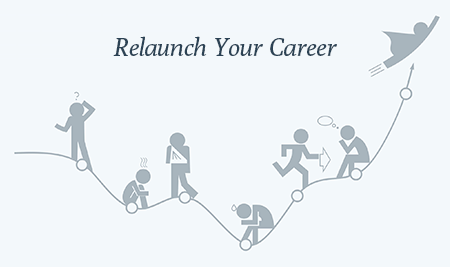Since starting my own business five years ago, I’ve gone through a lot of “firsts.” Getting hired by my first client. Hosting my first workshop. Hiring my first freelancer. Building my first website. Staring my first business. Launching my first podcast. Creating my first online course. The list goes on.
Going through a lot of things for the first time has convinced me that the shift from working full time in the corporate world to running your own business involves an extremely steep learning curve. I’ve definitely experienced my fair share of eye-opening moments that have taught me four things I wished I’d known sooner to make the ride a bit smoother.
1. Outsourcing Tasks Will Feel Uncomfortable At First
 Self-employment, by definition, feels like it should be something you do on your own. After all, that’s the whole point, right? So when I first started my business, I tried to do everything by myself. I know, I know. All sorts of advice is out there about why doing everything on your own is not a good strategy. Still, starting my own business made me a bit more of a control freak, probably because so much was at stake and because I wanted everything to be just right when it came to marketing, pricing, and positioning my services.
Self-employment, by definition, feels like it should be something you do on your own. After all, that’s the whole point, right? So when I first started my business, I tried to do everything by myself. I know, I know. All sorts of advice is out there about why doing everything on your own is not a good strategy. Still, starting my own business made me a bit more of a control freak, probably because so much was at stake and because I wanted everything to be just right when it came to marketing, pricing, and positioning my services.
Because I was reluctant to let go of the reins of the business I was building, I ended up wasting a lot of time trying to do everything myself. My first business logo was one I created myself using …wait for it…Microsoft Word. I pieced together my first website on WordPress.com using a ready-made template and my very rudimentary HTML skills. Needless to say, I ended up scrapping my site and my logo soon thereafter, but only after investing tons of time creating something that wasn’t even very high quality.
I eventually decided to outsource all tasks that didn’t fall into my core area of expertise or interest. That included web development and design, logo design, music composition for my podcast, animation for short-films, trademark filing, audio production, photo editing, administrative tasks and even document design. While hiring the right talent to help with tasks is an investment of time and money, it frees you up to focus your energies on your actual billable work and growth strategy that moves your business forward.
2. Investing In The Right Tools Supports Growth
 When I first started my new business, I wanted to run a low-overhead, low-cost operation, which meant I did my best to avoid any unnecessary expenses, including business expenses. So I did a lot of things manually rather than investing money into paying for administrative tools, software or services that weren’t absolutely critical to my client work.
When I first started my new business, I wanted to run a low-overhead, low-cost operation, which meant I did my best to avoid any unnecessary expenses, including business expenses. So I did a lot of things manually rather than investing money into paying for administrative tools, software or services that weren’t absolutely critical to my client work.
For example, I initially tracked my finances on an Excel sheet, which quickly became a royal mess when it came to tracking invoices, expenses and income. I also scheduled client meetings the old-fashioned way, simply emailing back and forth to find a mutually agreeable time, which was very time-consuming. I hesitated to pay for an email newsletter provider because I didn’t have many subscribers at first, which resulted in a rather manual rather than automated email process.
Eventually, I bit the bullet and invested in some paid solutions that have been worth every penny. I used QuickBooks Pro to track all my business finances. I used ScheduleOnce to automate my scheduling processes. I signed up for a paid Mailchimp account to automate my email marketing. In some ways, committing to ongoing business expenses created an urgency for me to grow my business to justify that spending.
Committing to ongoing business expenses can feel quite scary, especially when you’re first starting out. However, investing in the right overhead can save you time, lay a strong foundation to support the growth of your business, and also create a more professional operation.
3. Your Business Will Look Very Different A Year From Now
 I’ll admit I’m kind of a perfectionist. On the one hand, this has allowed me to maintain high-quality standards with my client work, which has helped my business grow. On the other hand, being a perfectionist also led me to invest way too much time and effort into getting things just right, only to walk away from all that investment later.
I’ll admit I’m kind of a perfectionist. On the one hand, this has allowed me to maintain high-quality standards with my client work, which has helped my business grow. On the other hand, being a perfectionist also led me to invest way too much time and effort into getting things just right, only to walk away from all that investment later.
For example, I invested a tremendous amount of energy into coming up with my first company name. I shopped it around with clients, ran surveys, attempted to trademark the name, and developed all my branding around that name. I felt the name perfectly encapsulated the work I did and the vision I had for my business. Less than a year later, the name felt too limiting.
I invested even more time and energy into creating my first website, only to walk away from it and completely revamp it a year later. The same thing happened with the presentation slide template I designed for my first big keynote talk. And the same thing happened with nearly every single piece of marketing collateral I created. In fact, I cringe when I look back at these materials now.
What I’ve learned is that your business will evolve faster than you may imagine. When I look back at my business a year ago or two years ago, it looks so different than it does now. I worked with different clients. I was invested in different endeavors. I charged lower fees.
This has two major implications. First, you should make choices that maximize your versatility because you never know where your business could head. Second, when it comes to company collateral, try to aim for high quality rather than perfect quality because, well, you’ll likely end up changing things in the future anyway.
4. Pushing Yourself To Behave Like Your Desired Future Self Is Critical
 Like most people I know, I’ve always felt more at ease when I’m just being myself rather than trying to be someone I’m not. This tendency has also held true during all my career transitions, especially during the early days of starting my own business. I tended to act in ways that were more consistent with the behaviors of a brand new business owner trying to find his feet–because that’s exactly what I was doing.
Like most people I know, I’ve always felt more at ease when I’m just being myself rather than trying to be someone I’m not. This tendency has also held true during all my career transitions, especially during the early days of starting my own business. I tended to act in ways that were more consistent with the behaviors of a brand new business owner trying to find his feet–because that’s exactly what I was doing.
For example, when I started off doing professional coaching, I initially did it for free. When I did have my very first paying client, I had to fight my natural urge to almost apologize for charging them. It felt strange to suddenly charge someone for something I’d naturally enjoyed doing for much of my professional life.
One of the best pieces of guidance about mindset I heard when I was at the start of my self-employment journey was from Guy Ferdman, cofounder of Satori Prime, in a discussion with former Competitive Edge podcast host Scott Britton. Ferdman said, “Who we are in the present moment is a function of the future we’re expecting. So you should act in a way that aligns with who you envision yourself being in the future, not the person you were in the past.”
For me, that meant pushing myself to act as if I was further along than I actually was, not with the intention to mislead or obfuscate, but rather, to act like the business owner I wanted to become. To act like the professional who had the reputation I wanted. To manage my business in a way that assumed I’d achieve the growth I wanted.
So just as a more established consultant would do, this philosophy meant setting higher prices for my services before I actually felt “ready” to charge that much. Just as a professional with a full portfolio of work would do, this meant saying no to certain opportunities, even though this felt counter-intuitive when just starting out. And just as a more well-resourced business owner would do, this meant investing in tools, teams and training even though I was trying to minimize my business expenses early on. All of these actions helped my business move more quickly in the direction I wanted.
Overcoming the initial discomfort of acting as if you’re already the person you hope to become can help you accelerate toward that desired future. When you act in ways consistent with your desired future, you actually start to create that future.
Your Ability To Adapt Is Critical To Success
 In Marshall Goldsmith’s book What Got You Here Won’t Get You There, he said, “If you know what matters to you, it’s easier to commit to change.” I’ve certainly found this to be true. What’s mattered to me is to build a business that allows me to do the work I find meaningful while maintaining a well-balanced lifestyle. And that’s meant adopting some new attitudes and ways of working to be effective as a business owner.
In Marshall Goldsmith’s book What Got You Here Won’t Get You There, he said, “If you know what matters to you, it’s easier to commit to change.” I’ve certainly found this to be true. What’s mattered to me is to build a business that allows me to do the work I find meaningful while maintaining a well-balanced lifestyle. And that’s meant adopting some new attitudes and ways of working to be effective as a business owner.The past five years of self-employment for me have been one of the most eye-opening periods of time in my professional career. I certainly don’t expect the next five years to be smooth sailing, but I’m hoping that these four lessons will equip me well to make the most of whatever comes my way during the next five years.
Did you enjoy this article?
Get my future articles on career change and personal branding sent straight to your inbox. You’ll also receive access to my Career & Personal Branding Resource Hub after you register. Also, to hear directly from people who have successfully reinvented their careers, tune into my Career Relaunch podcast for even more inspiration.



